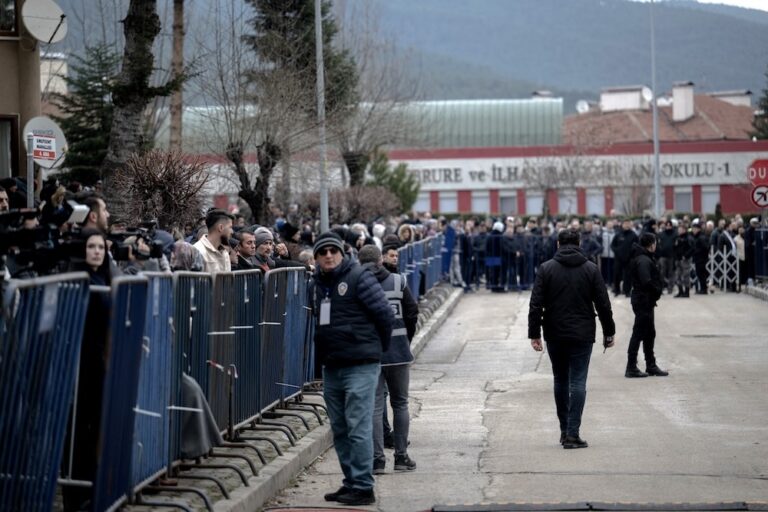(BIANET/IFEX) – The 28th Criminal Court of First Instance of Ankara sent the case file for Prof. Dr. Ibrahim Kaboglu, former head of the Human Rights Advisory Board of the Prime Ministry (BIHDK), and Prof. Dr. Baskin Oran, head of the subcommittee of the same board, to the Ministry of Justice to obtain permission for […]
(BIANET/IFEX) – The 28th Criminal Court of First Instance of Ankara sent the case file for Prof. Dr. Ibrahim Kaboglu, former head of the Human Rights Advisory Board of the Prime Ministry (BIHDK), and Prof. Dr. Baskin Oran, head of the subcommittee of the same board, to the Ministry of Justice to obtain permission for their prosecution under Article 301. The lawsuit was filed for “inciting hatred and hostility” by using the term “Türkiyelilik” (to be from Turkey) instead of “Turks” in a Minority Rights and Cultural Rights Report prepared by these two academics.
By sending the case file to the Ministry of Justice to obtain the necessary permission to continue the trial, Judge Avni Mis postponed the trial to 1 April 2009.
Judge Mis also rejected a demand by the accused and their lawyer, Oya Aydin, to send Article 301 for review to the Constitutional Court.
Aydin argued in a 17 December hearing that the article should have been sent to the Constitutional Court for restricting freedom of expression.
She argued that the said article violates the sixth article of the European Convention on Human Rights about “fair trial”, which emphasises the concepts of the rule of law and the independence of the judiciary.
“The Ministry of Justice is a political post. When it will make its decision, either for or against us, we will still be in the position of not having talked about our problem. Sending the case file to the ministry after four years points to a problem in the legal process. Having a political post decide whether or not one is guilty of a crime without a mechanism to control its decision may lead to arbitrariness. Since this procedure calls for an intervention by the executive branch, it is unconstitutional.”
“The second problem is that Article 301 violates freedom of expression. On the one hand, the denigration clause is not clear, on the other hand, it also states that the act of criticizing cannot be punished. Respect to the state cannot be maintained this way,” said Aydin.
Stating that Article 301 led Turkey into a crisis, Kaboglu and Oran said the condition of permission is “like asking for the forgiveness of the ministry.”
Moreover, Oran added that this crisis can be turned into an opportunity by sending this file to the Constitutional Court. The court said they might consider this demand after the file comes back from the Ministry of Justice.


